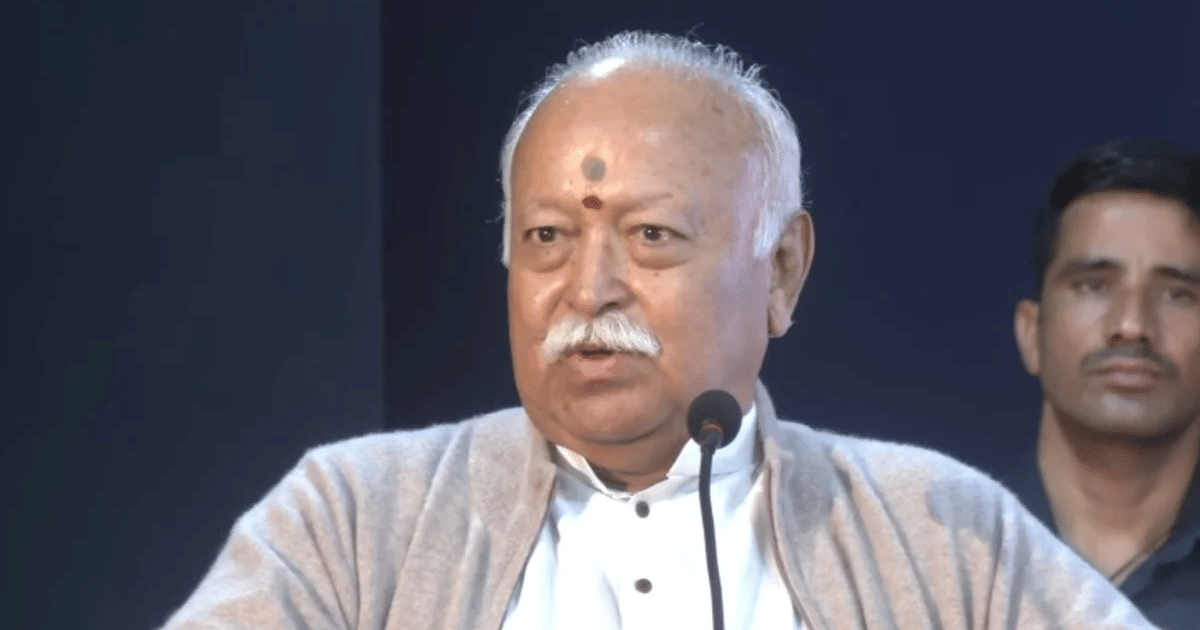 |
|
Mohan Bhagwat, the chief of the Rashtriya Swayamsevak Sangh (RSS), delivered a significant speech in Indore, Madhya Pradesh, on January 13th, 2024, linking the inauguration of the Ram Janmabhoomi Mandir in Ayodhya to India's attainment of 'true independence'. He declared that the day of the temple's inauguration marked a pivotal moment in Indian history, surpassing even the nation's political independence from British rule in 1947. This statement, while controversial, highlights the deep-seated religious and nationalist sentiments intertwined with the Ram Mandir movement within a significant section of Indian society. Bhagwat's assertion positions the temple as a symbol of reclaiming national identity and self-reliance, a concept central to the RSS ideology.
Bhagwat's speech directly addressed the criticism levelled against the Ram Mandir movement during its protracted campaign. He acknowledged the common question posed during the 1980s regarding prioritizing the temple over pressing concerns like poverty alleviation ('Garibi Hatao'). His response, however, was striking. He claimed that despite decades of socialist policies and rhetoric aimed at poverty eradication, India had lagged behind nations like Israel and Japan. This comparison aims to demonstrate the inadequacy of previous approaches to national development and positions the Ram Mandir as a catalyst for genuine progress. This argument strategically links religious nationalism with economic development, framing the temple not merely as a religious site, but as a foundation for a stronger, more prosperous India.
The speech also highlighted the RSS's interpretation of the Ram Mandir movement's historical context. Bhagwat presented the movement as an effort to reawaken the 'self' ('swa') of Bharat, asserting that past invaders deliberately targeted temples to extinguish India's cultural and national identity. The prolonged struggle for the temple's construction, according to Bhagwat, stemmed from resistance against this very effort to reclaim the nation's self-identity. This narrative casts the Ram Mandir as a symbol of resistance against historical injustices and a crucial element in the ongoing project of nation-building within the RSS's ideological framework. This narrative conveniently sidesteps critiques of the movement’s role in communal tensions and violence.
The implications of Bhagwat's statement are far-reaching. It not only reinforces the Ram Mandir's symbolic importance for the RSS and its affiliated organizations but also frames the ongoing political and social discourse in India. It raises questions about the role of religion in shaping national identity and development strategies. The speech's direct comparison of India's post-independence economic performance to other nations is a significant rhetorical tactic, aiming to shift the narrative from merely religious to one involving economic and national pride. The linkage between the temple and the nation's destiny serves as a powerful message resonating with the RSS's constituency.
Furthermore, the speech's delivery at an award ceremony further underlines the importance that the RSS places on the Ram Janmabhoomi Teerth Kshetra Trust and its role in achieving this pivotal moment. By presenting the award to Champat Rai, the general secretary of the Trust, Bhagwat directly connects the RSS's organizational capacity and vision with the successful construction of the Ram Mandir. This illustrates the complex relationship between the RSS, its political allies, and its overarching ideology. This intertwining of religious, political, and social factors makes analyzing the significance of Bhagwat's statement more intricate and requires considering the broader political and socio-religious landscape of India.
Analyzing Bhagwat's statement requires considering various perspectives. While it resonates strongly within the RSS's ideological framework and its supporters, it is likely to be met with criticism from those who view the Ram Mandir's significance differently. Critics might highlight the potential for exclusion of minority communities and the overlooking of other pressing issues facing the nation. The speech highlights the ongoing tensions and debates surrounding the relationship between religion, politics, and national identity in India. The discourse generated by Bhagwat's pronouncements will undoubtedly shape political narratives and discussions in the lead-up to and beyond the upcoming general elections.
